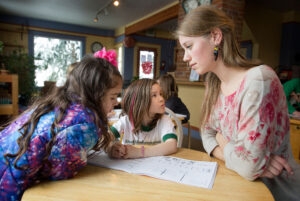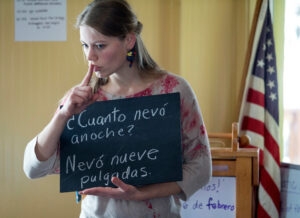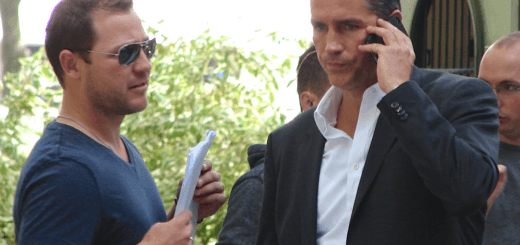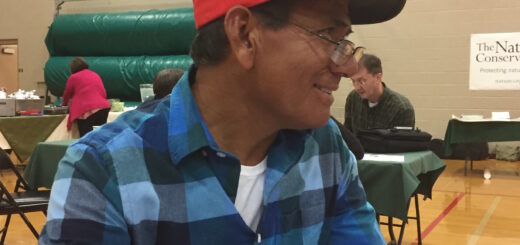Keisha and Adrián Pt. 3: Life as the wife of an undocumented immigrant is challenging, but fulfilling
This is the third in a series of stories about a married couple with three kids in the Wenatchee Valley. Keisha grew up in the United States and is a teacher at Joyful Scholars Montessori and her husband Adrián an undocumented immigrant from Mexico.
While she realizes that policies may not need to change based on the heartstring pull of stories like theirs, she hopes that attitudes toward undocumented immigrants will evolve to where they are seen as human beings. “That sense of disapproval, I’m ashamed to say, took a few years to dissipate completely, even after getting married,” she continued. “What has helped me, has been to listen to the stories of other undocumented immigrants, ask questions, and eventually I have come to a place where I can say that I admire and empathize with the difficulties of their choices and their journeys.”
Keisha had grown up in a staunchly Republican family in Alaska and felt that undocumented individuals had broken some moral standards. She is a teacher by profession and has taught in South America, an experience that significantly shaped her life. She came to our valley to attend Wenatchee Valley College and later started a Christian preschool in the valley and worked at the literacy council. Currently, she teaches part time at Joyful Scholars Montessori.
She’s a person with strong moral values based on her Christian beliefs, so at first it seemed that getting romantically involved with Adrián would not be possible. What changed her mind was getting to know Adrián’s story. She came to understand that he came to this country illegally because his mother was seriously ill and potentially dying. He was in engineering school in Mexico at the time with a house and a girlfriend. He had no intent of coming the United States. But when he was unable to legally get into the U.S. to see his mother, he made the choice to cross illegally. She began to understand that by making that decision, he was making a moral choice that she could appreciate and understand.
There was something else about this young man that attracted her. He is a man whose actions mirrored his words. His soft-spoken manner, quiet confidence and conservative views won her over.
She came to understand that, like many other undocumented immigrants, he did not come to this country out of a sense of malice or to take advantage. “He was actually here because he had a good heart.” As she has come to know the stories of other undocumented immigrants, she hears similar stories of coming because of the “goodness of their hearts.” Her family has embraced Adrián as part of the family, regardless of his immigration status. Her mother told her to “get over” his lack of legal status here. Which goes to show you that these matters are much different when personal relationships are involved rather than just statistics.
Like her husband, Keisha is confident that no matter what happens— whether he’s deported or is allowed to stay in this country — their family will be all right. In fact, she sees a potential benefit to raising their children in a foreign country. “We live in a prosperity bubble” in this country, she told me. “The rest of the world lives in a very different reality,” she added.
They are now going through the process of seeking a waiver for economic hardship that would allow him to remain in the country, but whether that becomes a reality is unknown. Both of them expressed to me their confidence that they will take in stride whatever happens.
Making ends meet is difficult on his labor in the orchards of North Central Washington, which is his only option, and her part-time work as a teacher. She and their children qualify for social benefits and have accepted that help occasionally to make ends meet. Accepting that assistance bothers Adrián. As an undocumented individual, he cannot receive any benefits. Yet he pays federal and state taxes like those with legal status.
Their life is not easy, and he sometimes tells her that maybe it would be better if she got married to someone else. Keisha has a different view: “Thank God I didn’t get married to someone else,” she says. “I’d far prefer this struggle that we can face together,” she said.




